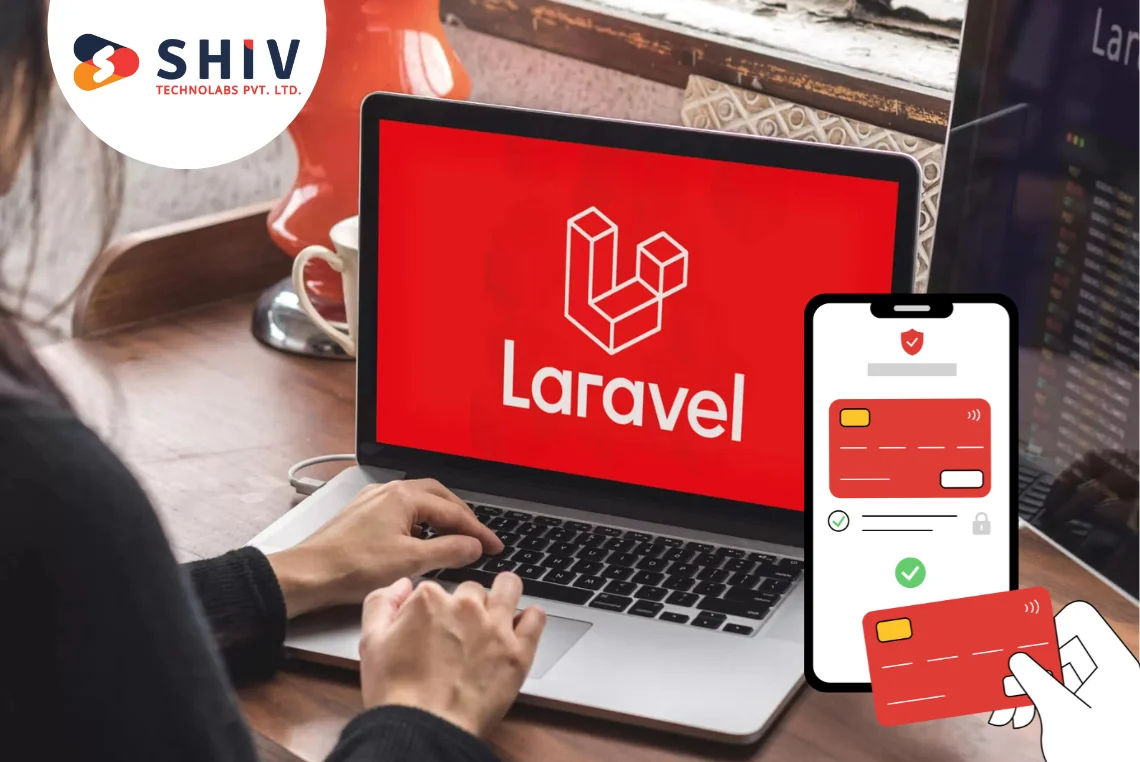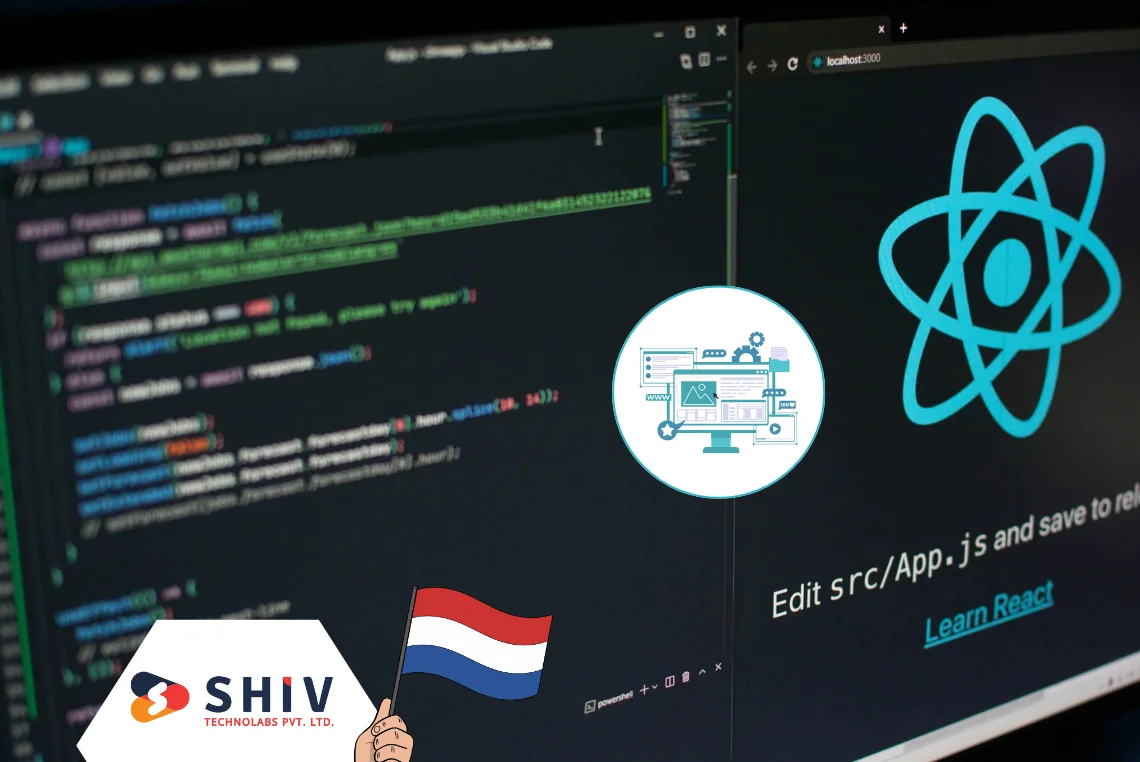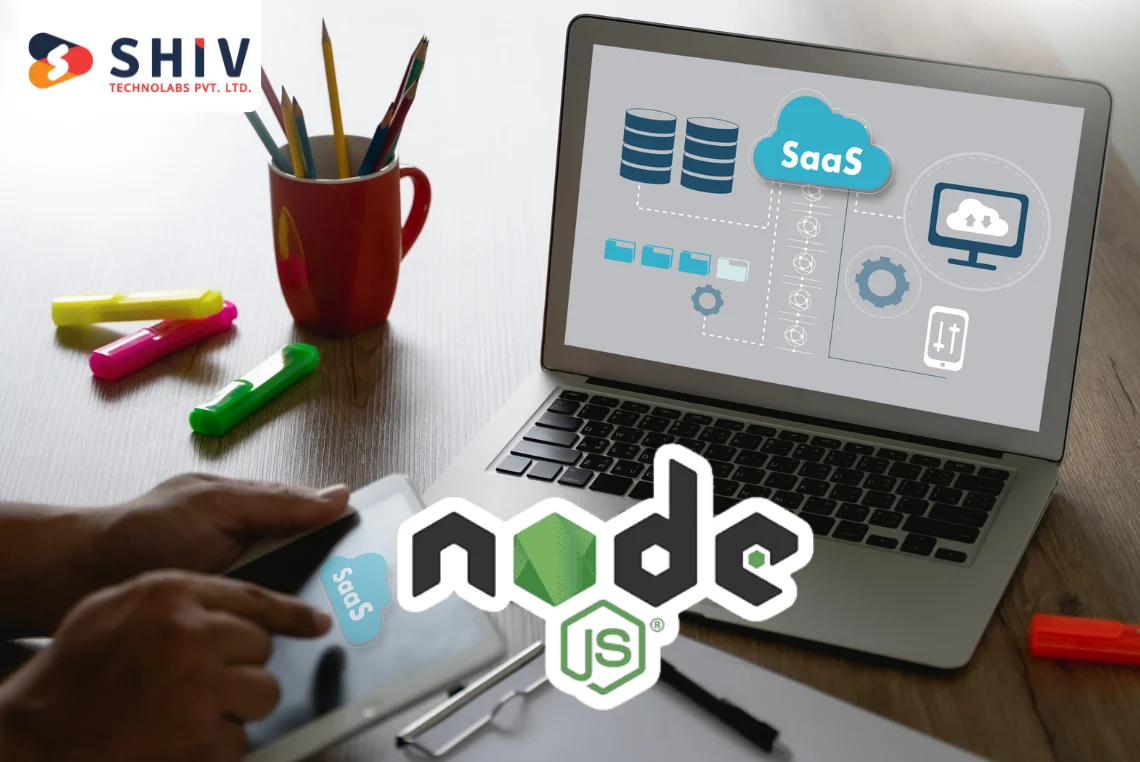Table of Contents
Dutch ecommerce keeps growing, with shoppers expecting fast, safe checkout across devices. If you need a laravel development company in Netherlands, you also need a payment foundation built for trust. The stakes are high for online payment Netherlands merchants, from chargebacks to privacy fines and customer churn.
Laravel stands out for its security-first architecture and clean patterns that fit regulated markets. Laravel payment integration with iDEAL, Mollie, Stripe, and PayPal gives wide coverage without complicated workarounds. This framework helps teams move from MVP to scale while keeping payment logic consistent and testable across features.
iDEAL remains the most used Dutch method, and shoppers expect it to work every single time. The platform backing that flow must protect card data, customer identity, and refund paths. Laravel ships with guardrails that cut common risks before they reach your checkout pipeline.
In short, Dutch stores pick Laravel because it lowers risk and shortens delivery time for payment features. You get structured security, trusted plugins, and an active community that spots issues early. With the right team, you can ship upgrades confidently and grow revenue with fewer payment failures.
Why Do Dutch Online Stores Prefer Laravel for Secure Payment Systems?
How does Laravel help create a secure payment system for Dutch brands?
A secure payment system, Laravel builds start with strong defaults and predictable middleware layers. Laravel provides robust encryption for sensitive fields, CSRF protection on forms, and strict session controls with SameSite cookies. Passwords and tokens rely on proven hashing algorithms, reducing exposure from leaks or brute force attacks.
Token security extends to APIs through Sanctum or Passport, supporting device tokens, scopes, and revocation. Signed routes, input validation, and rate limiting stop common abuse, while logs and events help pinpoint incidents quickly. Queues isolate heavy tasks so your checkout stays responsive even during fraud checks or peak sales.
What Dutch compliance and safety standards does Laravel support?
For Dutch stores, GDPR shapes data handling from checkout field design to retention rules. PSD2 drives strong customer authentication and audit trails, while PCI DSS guides network scope and card processing controls. Laravel’s ecosystem supports 3DS2 flows, consent tracking, and data subject requests through clear controllers and auditable processes. These patterns help Dutch teams reduce audit friction and pass gateway reviews without slowing feature delivery. Granular policies and gates restrict actions by role, keeping payment data access limited and traceable. Guidance on when to scale your team is here: when to hire a Laravel development agency.
How Does Laravel Support Payment Gateway Integration in the Netherlands?
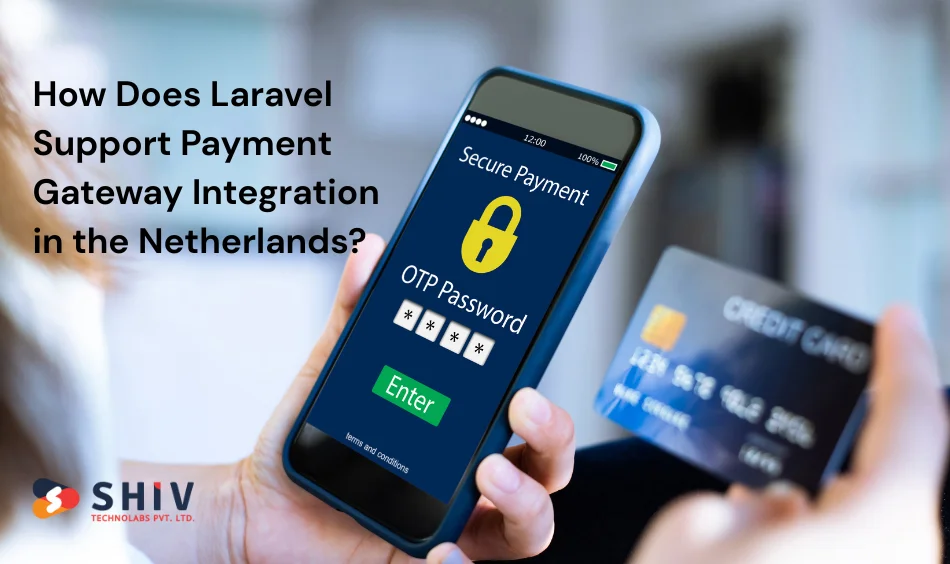
Dutch shoppers expect quick checkout, clear payment options, and instant status updates after placing an order. Laravel matches these demands with tidy controllers, predictable middleware, and dependable webhook handling across gateways. Your team ships features faster, while auditors and security staff can follow the code without guesswork. That mix supports steady growth during peak sales periods across the Netherlands.
Which payment gateways can Dutch stores integrate with Laravel?
Laravel payment integration covers local and global providers without brittle patches or fragile custom scripts. iDEAL connects through Mollie or direct banks, while Stripe and PayPal handle cards, wallets, and cross-border buyers.
Laravel SDKs reduce boilerplate by managing authentication, retries, timestamps, and signature validation for webhook calls. Controllers post orders, capture payments, and sync refunds back to stock, CRM, and accounting systems.
Signed routes and middleware reject spoofed events before they touch core payment logic or customer records. Teams isolate gateway code with service classes and contracts, which keeps tests focused and upgrades predictable.
Eloquent models track payment states, failures, and chargeback notes, giving finance teams clear reporting and audit trails. Feature flags and sandbox modes support safe launches during busy periods like King’s Day and Sinterklaas.
How does Laravel handle complex payment flows in ecommerce?
A Laravel-based payment system for Dutch brands manages subscriptions, trials, and tiered plans using Cashier with event hooks. Cashier handles proration, dunning, and SCA, while logs capture every action for finance and compliance reviews. For multi-vendor or marketplace logic, see our Laravel marketplace guide.
Queues move heavy tasks off requests, so checkout stays responsive during bank validations and fraud checks. Idempotency guards refund and capture endpoints, preventing duplicates when networks drop or shoppers retry actions.
Workflows cover split payments, partial refunds, vouchers, and gift cards without turning code into a tangled mess. Policies and gates restrict sensitive actions to approved roles, while audits record who changed what and when.
What Makes Laravel Ideal for Checkout and Transaction Workflows?
Checkout speed and clarity decide whether Dutch shoppers finish their orders or abandon carts. Laravel gives teams predictable patterns for orders, payments, and webhooks, so releases stay steady during busy seasons. Tested flows, strict routing, and clean controller layers keep payments reliable when traffic spikes across nationwide campaigns.
Transaction workflows demand strong state handling from pre-auth to capture, refund, and chargeback notes. Laravel models map each transition clearly, while events and listeners record what happened and when. Operations teams can trace issues quickly, and product teams can shape new flows without risky rewrites.
Why is Laravel a top choice for stable and smooth checkout?
Laravel checkout development focuses on clarity, test coverage, and quick feedback loops across payment screens. Form requests validate inputs before business logic runs, and rate limiting blocks repeat abuse during card or bank checks. Signed routes restrict sensitive actions to valid requests, cutting the chance of forged calls or replay attempts.
Queues move heavy work, like invoice generation or stock sync, away from user clicks. That keeps pages responsive while gateways confirm charges or banks finalize iDEAL steps. Feature flags let teams launch upgrades gradually, reducing rollout risk during holiday peaks or national promotions across Dutch retail. If you’re comparing stacks, our core Laravel development overview sums up options.
Laravel’s clear structure helps designers and developers refine checkout steps without tangled logic. Teams adjust copy, add trust badges, and test new fields while keeping security rules intact. The result is faster paths to confirmation pages, fewer cart exits, and stronger repeat purchase rates across categories.
How does Laravel improve security for Netherlands ecommerce stores?
Dutch merchants face rising fraud attempts, tighter audits, and strict buyer privacy rules. Laravel helps teams ship guarded flows with CSRF tokens on forms, robust encryption for sensitive fields, and hashed secrets for tokens or credentials. Input validation blocks risky payloads, and middleware enforces session integrity across each step.
Webhooks run behind signed routes, so spoofed events fail before touching payment data. Role policies restrict who triggers refunds or captures, and audit logs show every sensitive change. These guardrails explain why businesses choose Laravel for ecommerce in Netherlands, especially when checkout trust shapes lifetime value and brand reputation.
Security Features to Highlight
- CSRF protection across forms and webhooks
- Strong encryption for fields and secrets
- Queues for offloading heavy payment tasks
- Rich API support with signed routes
- Session handling with SameSite cookies
- Validation and rate limiting on inputs
- Detailed events and audit trails
What Is the Cost to Build a Secure Laravel Payment System in the Netherlands?
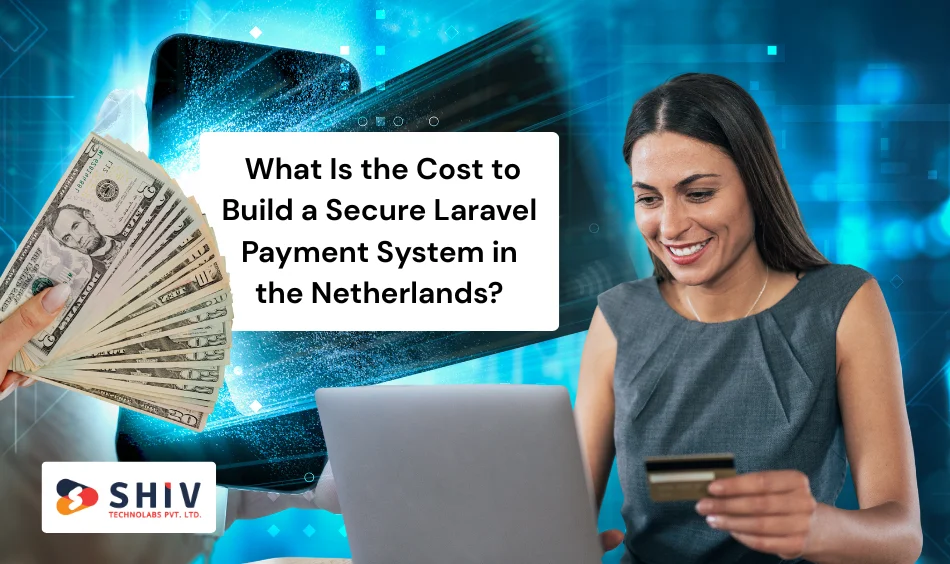
Budget planning starts with scope, risk, and the number of supported payment methods. Dutch stores often combine iDEAL with cards, Klarna, and PayPal for a broader reach. Each extra method adds flows, webhooks, testing, and support, which raises effort and delivery time. If you need team capacity, consider our option to hire Laravel developers.
Security, compliance, and scaling targets also shape the final figure. Teams must handle SCA, 3DS2, consent storage, and audit logs for finance reviews. Clear non-functional goals – uptime, latency, and incident response – drive architecture choices that influence development hours and tooling.
What factors affect Laravel payment development cost?
The cost to build Laravel payment system in Netherlands depends on the complexity across gateways, checkout paths, and reporting. Basic builds cover a single gateway, success and failure routes, and clean refunds. Advanced setups add subscriptions, proration, vouchers, split payments, and marketplace flows with extra risk checks.
Compliance work adds structured tasks for GDPR, PSD2, PCI scope reduction, and SCA testing with 3DS2. Teams budget time for consent logs, role policies, and audit trails that match Dutch finance needs. Broader integrations – ERP, CRM, and accounting – add mapping, retries, and idempotent endpoints for reliable syncing.
Performance and scaling plans raise or lower costs based on expected peaks and regional traffic. Queues, caching, circuit breakers, and monitoring keep checkouts steady during promotions and holiday rushes. Finally, post-launch support, dashboards, and incident playbooks round out the estimate for a production-ready rollout.
What is the price range for Laravel payment solutions in the Netherlands?
For planning, many stores request a phased approach with a small initial scope, then measured upgrades. Start with one gateway and core refunds, then expand to subscriptions, vouchers, and wider currency support. This roadmap helps teams ship value early while keeping room for careful testing and audits.
Estimated Budgets
| Scope | Typical Budget (EUR) | Notes |
|---|---|---|
| Basic iDEAL setup | €1,200–€3,000 | Single gateway |
| Multi-gateway (Mollie, Stripe) | €3,500–€8,000 | API + security |
| Enterprise payment system | €8,500–€30,000+ | Fraud prevention, scaling |
These ranges reflect common Dutch builds; custom flows or legacy systems may sit higher. A brief discovery call and technical review usually sharpen timelines and reduce change-order risk.
How Can Dutch Businesses Hire the Right Laravel Developers?
What skills matter for secure payment projects?
Payment code touches money, privacy, and trust, so treat it like critical infrastructure. Seek engineers who write clear controllers, strong tests, and service layers that stay readable during audits. You should hire Laravel experts who understand queues, jobs, and idempotency for captures, refunds, and retries.
Should Dutch eCommerce stores hire freelance or agency developers?
Freelancers suit a single gateway or quick upgrades; agencies suit multi-gateway builds with subscriptions, reports, and audits. For Dutch ecommerce development, compare speed, bench strength, post-launch support, and ask how they handle spikes and incidents.
Checklist for shortlisting partners
- Live Dutch payment projects
- iDEAL, Mollie, Stripe, PayPal portfolio
- Solid security habits and repeatable reviews
- ERP/CRM/accounting integrations
Why Work With Us for Your Laravel Payment System in the Netherlands?
What do we deliver for Dutch ecommerce brands?
Shiv Technolabs ships payment features that pass audits, hold steady under load, and reduce cart exits. Our team designs tidy flows for iDEAL, cards, wallets, refunds, and subscriptions with code your staff can maintain.
Our Laravel ecommerce and payment strengths
- Advanced security patterns
- Local gateway expertise
- Scaling plans for peaks
- Fast delivery with testers
Conclusion
Laravel gives Dutch stores a safe path to steady checkout growth by combining strong defaults, clear patterns, and broad gateway coverage across iDEAL, Mollie, Stripe, and PayPal, so teams ship upgrades with less risk while shoppers see faster confirmations, fewer cart exits, and predictable refunds, which supports higher lifetime value and smoother finance reviews during busy Dutch retail seasons.
If you need laravel development services in Netherlands, talk to our team today about a scoped rollout that starts with the essentials – single gateway, clean refunds, and clear logs – then grows to subscriptions, vouchers, and reporting, with careful testing, staging, and incident playbooks, so your payment stack holds steady during peaks like King’s Day, holiday sales, and nationwide promotions.
We will plan, build, and support your payment system with care, from discovery and design to post-launch tuning, with structured security reviews, SCA and 3DS2 checks, role policies, and audit trails, plus dashboards and alerts for quick action, giving stakeholders confidence in checkout performance while your brand focuses on growth, partnerships, and better customer service across the Netherlands.
FAQs
Q1. Is Laravel safe enough for Dutch ecommerce payment systems?
Yes. Laravel offers CSRF tokens, encryption, signed routes, and strict validation to guard payment flows. Audits, logs, and limited roles add visibility and control without slowing checkout or refunds securely.
Q2. Can Laravel integrate iDEAL and Mollie payments?
Yes. iDEAL runs through Mollie with signed webhooks and retries, while Stripe and PayPal cover cards and wallets. Stores can add providers later without breaking refunds, reports, or order histories.
Q3. How long does it take to build a Laravel payment system?
Smaller scopes ship in weeks; complex builds take longer with audits, subscriptions, and reports. A short discovery call clarifies scope, traffic targets, dependencies, and migration needs for planning and budgets.
Q4. What security measures does Laravel offer for checkout systems?
Laravel protects checkout with CSRF tokens, encryption, validation, rate limits, and signed routes. Queues move heavy tasks, while audits record sensitive changes and alerts flag suspicious activity in real time.
Q5. What industries in the Netherlands benefit most from Laravel payments?
Retail, fashion, groceries, ticketing, and subscriptions see strong results in the Netherlands. iDEAL builds trust locally, while cards and wallets widen reach for visitors and cross-border shoppers year-round.
Q6. How do maintenance and updates work after launch?
Teams schedule patches, dependency checks, and version updates with dashboards and alerts. Runbooks guide incidents, and periodic reviews adjust capacity, gateways, logs, and reports for stable, long-term growth safely.

